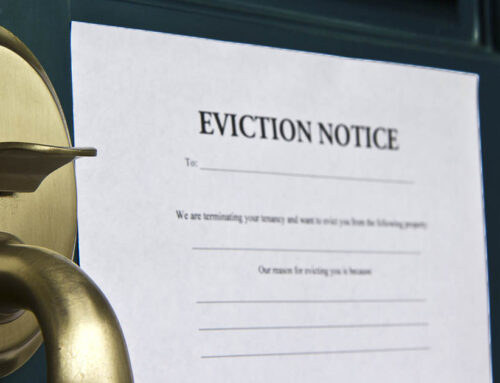Wage garnishment can be one of the most complex financial challenges. When collectors try to take part of your paycheck, you lose the ability to pay your essential household expenses. Moreover, that financial strain affects your mental health, which impacts your relationships and professional productivity.
Thankfully, bankruptcy can provide relief—and put an end—to wage garnishments while simultaneously putting control back into your hands.
What is Wage Garnishment?
Wage garnishment is a court order to your employer demanding that they withhold a certain amount of money from your paychecks to satisfy a court judgment. A private collector can only start a wage garnishment once they file a lawsuit against you and win a judgment.
To garnish your wages, the judgment creditor gets a writ of execution from the court and serves it on your employer. Your employer will notify you of the Earnings Withholding Order before the wage garnishment begins.
How Much Can a Wage Garnishment Take in California?
In California, private creditors with court judgments can garnish the lower of the following:
- 25% of your disposable income from employment wages; or
- the amount by which your weekly disposable income exceeds 40 times the minimum wage.
Self-employed income such as 1099 and freelance earnings cannot legally be subject to a garnishment order. Disposable income is calculated by taking your gross salary minus mandatory deductions from each paycheck.
These limits don’t apply to court-ordered child support, tax debts, or federal student loans.
Example: You work in Los Angeles, earning $1,040 per week. After deducting taxes and Social Security, your disposable income is $828.69 per week. You calculate your wage garnishment as follows:
- 40 times the minimum wage in Los Angeles ($15.96 per hour as of July 1, 2022): $638.40
- 25% of your disposable income: $207.17
- the amount by which your weekly disposable income exceeds 40 times the minimum wage: $190.29
Using these calculations, you can see that your wage garnishment would be $190.29 per week. The wage garnishment would continue until the judgment is paid in full, plus continuing interest and other court-approved legal fees and costs.
Objecting to a Wage Garnishment
Under state and federal law, some types of income and property are exempt from garnishment. If you believe your wages are exempt, you have ten days after receiving notice of the Earnings Withholding Order to file a Claim of Exemption with the Sheriff’s Department. The judge will hold a hearing and block the garnishment if they agree with your claimed exemption.
California law permits you to file a Claim of Exemption anytime. Still, you won’t get a refund of any wages already taken from you.
How Bankruptcy Stops Wage Garnishment Permanently
All collection efforts must stop as soon as you file for bankruptcy. Called an automatic stay, this also applies to wage garnishment. At the end of the bankruptcy case, if the unpaid debt is discharged, then the wage garnishment disappears forever.
In this way, filing bankruptcy offers certainty and a permanent solution. In contrast, objecting to wage garnishment in state court provides short-term relief only if the judge agrees with your claimed exemption.
Bankruptcy Offers Additional Benefits
In addition to stopping wage garnishments and allowing you to regain control of your finances, numerous other benefits come with filing for bankruptcy.
For example, bankruptcy:
- eliminates unsecured debts, such as credit cards and medical bills;
- stops foreclosures and repossessions;
- provides an opportunity to catch up on past-due mortgage and vehicle payments;
- allows you to repay other obligations without additional interest and fees;
- protects valuables and property, like a home or car, from collectors.
By stopping collection activities such as phone calls, letters, lawsuits, and judgments, bankruptcy can provide you with the peace of mind you deserve. Additionally, filing for bankruptcy impacts your credit score less than ignoring your debt.
Talk to a Bankruptcy Lawyer Before Making a Move
If you’re facing wage garnishment, get advice from a bankruptcy lawyer. Your financial issues will only worsen if collectors take part of your paycheck, but you’ve got a lot of options for resolving the problem. By understanding those choices, you can protect yourself, avoid additional costs, and reduce stress.
As a bankruptcy lawyer representing people with debt problems for over 27 years, I have the experience you need to get the best solution to your financial problems. When you meet with me for a Planning Session, I’ll assess your situation and review all your options – not only bankruptcy. I’ll take the time to explain the pros and cons of bankruptcy, how it will affect your current situation, and what to expect from the process. This way, you’ll get the best solution for your needs and create a better financial future.
ABOUT THE AUTHOR
Meet Jay
 Since I became a lawyer in 1995, I’ve represented people with problems involving student loans, consumer debts, mortgage foreclosures, collection abuse, and credit reports. Instead of gatekeeping my knowledge, I make as much of it available at no cost as possible on this site and my other social channels. I wrote every word on this site.
Since I became a lawyer in 1995, I’ve represented people with problems involving student loans, consumer debts, mortgage foreclosures, collection abuse, and credit reports. Instead of gatekeeping my knowledge, I make as much of it available at no cost as possible on this site and my other social channels. I wrote every word on this site.
I’ve helped thousands of federal and private student loan borrowers lower their payments, negotiate settlements, get out of default and qualify for loan forgiveness programs. My practice includes defending student loan lawsuits filed by companies such as Navient and National Collegiate Student Loan Trust. In addition, I’ve represented thousands of individuals and families in Chapter 7 and Chapter 13 bankruptcy cases. I currently focus my law practice solely on student loan issues.
I played a central role in developing the Student Loan Law Workshop, where I helped to train over 350 lawyers on how to help people with student loan problems. I’ve spoken at events held by the National Association of Consumer Bankruptcy Attorneys, National Association of Consumer Advocates, and bar associations around the country. National news outlets regularly look to me for my insights on student loans and consumer debt issues.
I’m licensed to practice law in New York and California and advise federal student loan borrowers nationwide.
continue reading





